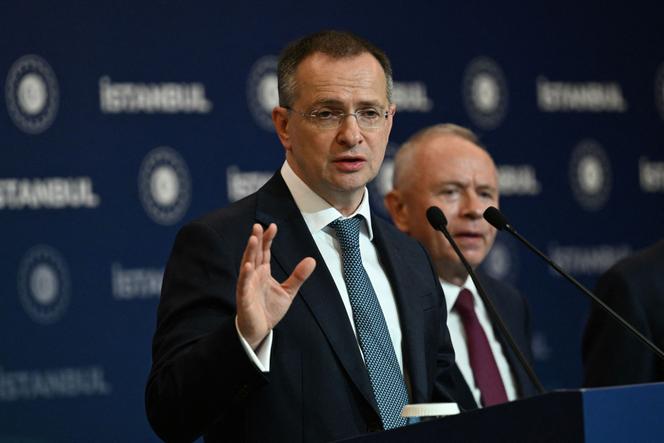


Ukraine on Wednesday, July 23, proposed direct talks within weeks between its President Volodymyr Zelensky and Russia's Vladimir Putin, but Moscow tempered prospects for progress at a fresh round of talks in Istanbul on Wednesday. Moscow's lead negotiator Vladimir Medinsky told reporters the sides had lengthy discussions but added: "The positions are quite distant. We agreed to continue contacts."
He said both countries agreed to exchange 1,200 prisoners of war each and that Moscow offered to hand Kyiv the bodies of 3,000 killed soldiers. "We once again proposed to the Ukrainian side... to establish short 24- to 48-hour ceasefires on the line of contact, so that medical teams are able to collect the wounded and so that commanders can come take the bodies of their soldiers," he added.
Host country Turkey urged steps towards a lasting ceasefire and peace deal, but the Kremlin played down any expectations of a breakthrough after three-and-a-half years of war.
Ukraine's lead negotiator, Rustem Umerov, told reporters: "Priority number one is to organize the meeting of the leaders, of presidents," in comments after the talks. He said Kyiv had proposed to hold the talks by the end of August, with US President Donald Trump and Turkish President Recep Tayyip Erdogan also participating. The two sides previously met in the Turkish city in May and June, but managed to agree only on exchanges of prisoners and soldiers' bodies.
"No one expects an easy road. It will be very difficult," Kremlin spokesman Dmitry Peskov told reporters ahead of the talks when asked about his expectations.
Ukraine said it hoped the two countries would discuss the release of prisoners and lay the ground for a meeting between President Volodymyr Zelensky and Russian counterpart Vladimir Putin. But Moscow has said a lot of work is needed before even discussions can take place about possible talks between Putin and Zelensky, who last met in 2019. The two sides have radically different positions for ending the conflict.
Russia has called on Ukraine to effectively retreat from the four Ukrainian regions Moscow claims to have annexed in September 2022, a demand Kyiv has called unacceptable. Ukraine has ruled out any negotiations on territory until after a ceasefire and says it will never recognize Russia's claims over occupied territory – including Crimea, which Moscow annexed in 2014.
Russia's full-scale invasion, launched in February 2022, has ravaged swathes of eastern and southern Ukraine, killing tens of thousands of soldiers and civilians. Ukraine said former defense minister Rustem Umerov, who currently serves as security council secretary, would head its delegation.
The Kremlin said it would send political scientist Vladimir Medinsky to lead its negotiating team. Medinsky, who led the Russian delegation in the two previous rounds of negotiation, is not seen as a powerful decision-maker. Ukraine has labelled him a puppet.
At the last talks on May 16 and June 2, the two sides agreed to large-scale prisoner exchanges. They also exchanged their draft terms for ending the conflict, which the Kremlin said were "diametrically opposed."
Wednesday's talks come as the White House steps up pressure on Russia to agree a compromise. Trump announced last week he was giving Russia until September to strike a peace deal with Ukraine or face sanctions. The US leader has been trying to broker an end to the war since his inauguration in January, but has failed to extract any concessions from the Kremlin, despite repeated phone calls with Putin.
Russia has meanwhile intensified its bombardment of Ukrainian towns and cities, while advancing across several different areas of the front line. Between late Tuesday and early Wednesday, Russia fired 71 drones at four different regions of Ukraine, said the Ukrainian air force. The Russian defense ministry said Wednesday it had captured the village of Varachyne in Ukraine's northern Sumy region, where Moscow has been advancing for weeks. A Russian drone attack on the Sumy region cut power to more than 220,000 people earlier Wednesday, Zelensky said.
Turkey's President Recep Tayyip Erdogan last month called on both sides not to "shut the door" on dialogue.
